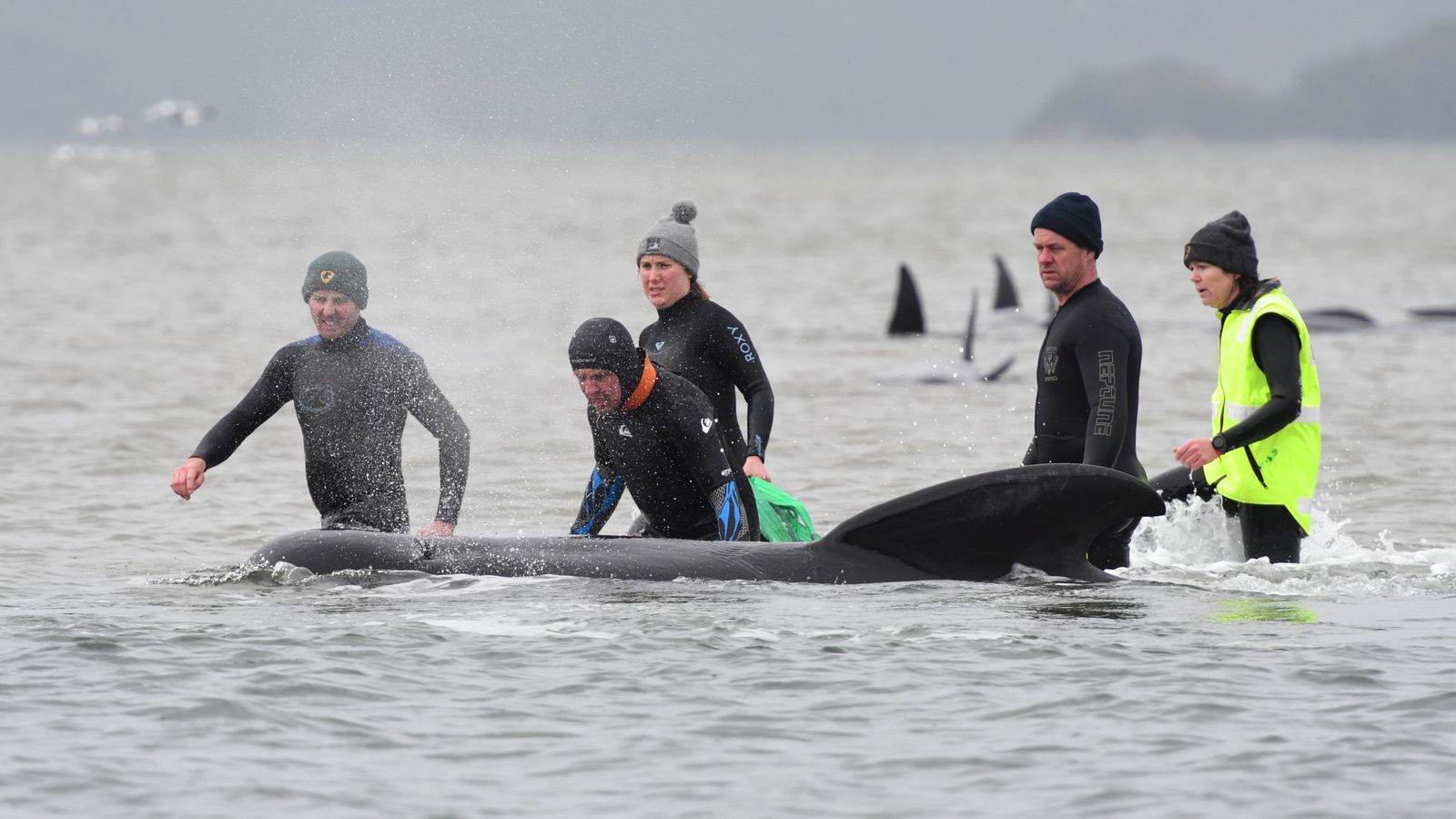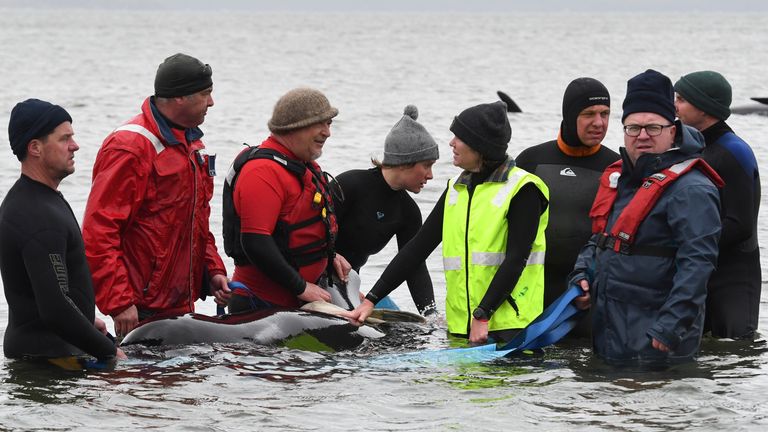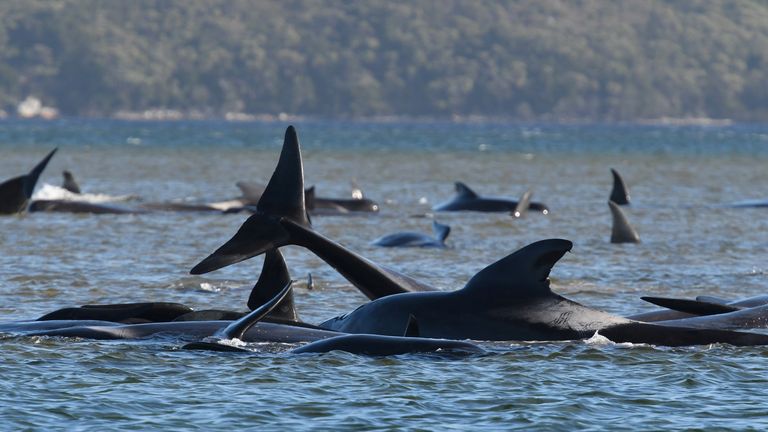Rescuers in Australia say conditions are in their favour as they try to save around 180 whales stranded in one of the country’s worst beaching events.
An estimated 270 pilot whales became stuck in shallow water on a sandbar off the remote west coast of the Australian island of Tasmania.
Twenty-five have been returned to deeper waters, rescuers say, while Australian government scientists estimate about 90 of the animals have died.
Around 40 government scientists, 20 police officers, and local fish farmers and volunteers are involved in the rescue attempt.
As the attempt to refloat the whales got under way, prevailing wet, cool conditions, rough waters and the remote location helped their chances of success, officials said.
Kris Carlyon, a wildlife biologist with the state government, said: “It’s pretty ugly out there for people on the ground, but as far as the whales go it’s ideal. If the conditions stay the same they can survive quite a few days.”
But the choppy seas also made it the hardest rescue they had faced, experts said, given the labour-intensive nature of the task.
Pilot whales are a species of oceanic dolphin that grow to seven metres (23ft) long and can weigh up to three tonnes.
Drawing them back out to sea can include physically pushing the animals or using specialised tarpaulins and pontoons to drag them to deeper water. Rescuers try to keep the whales upright to avoid disorientation.
Aerial footage showed large numbers of the whales largely prone on a wide sandbar at Macquarie Harbour, about 120 miles (200km) northwest of the state capital Hobart, while others floundered in slightly deeper water.
Mr Carlyon said: “We’ve got animals that are semi-buoyant, so it probably won’t take too much to refloat those animals closer to the deeper water, and will involve just a bit of grunt from specialised crew in the water.”
Scientists do not know why whales, which travel together in pods, sometimes beach themselves but they are known to follow a leader, as well as gather around an injured or distressed whale.


